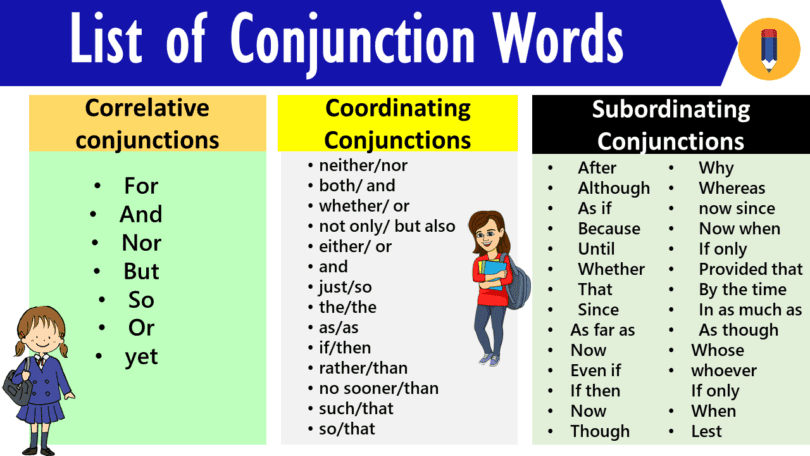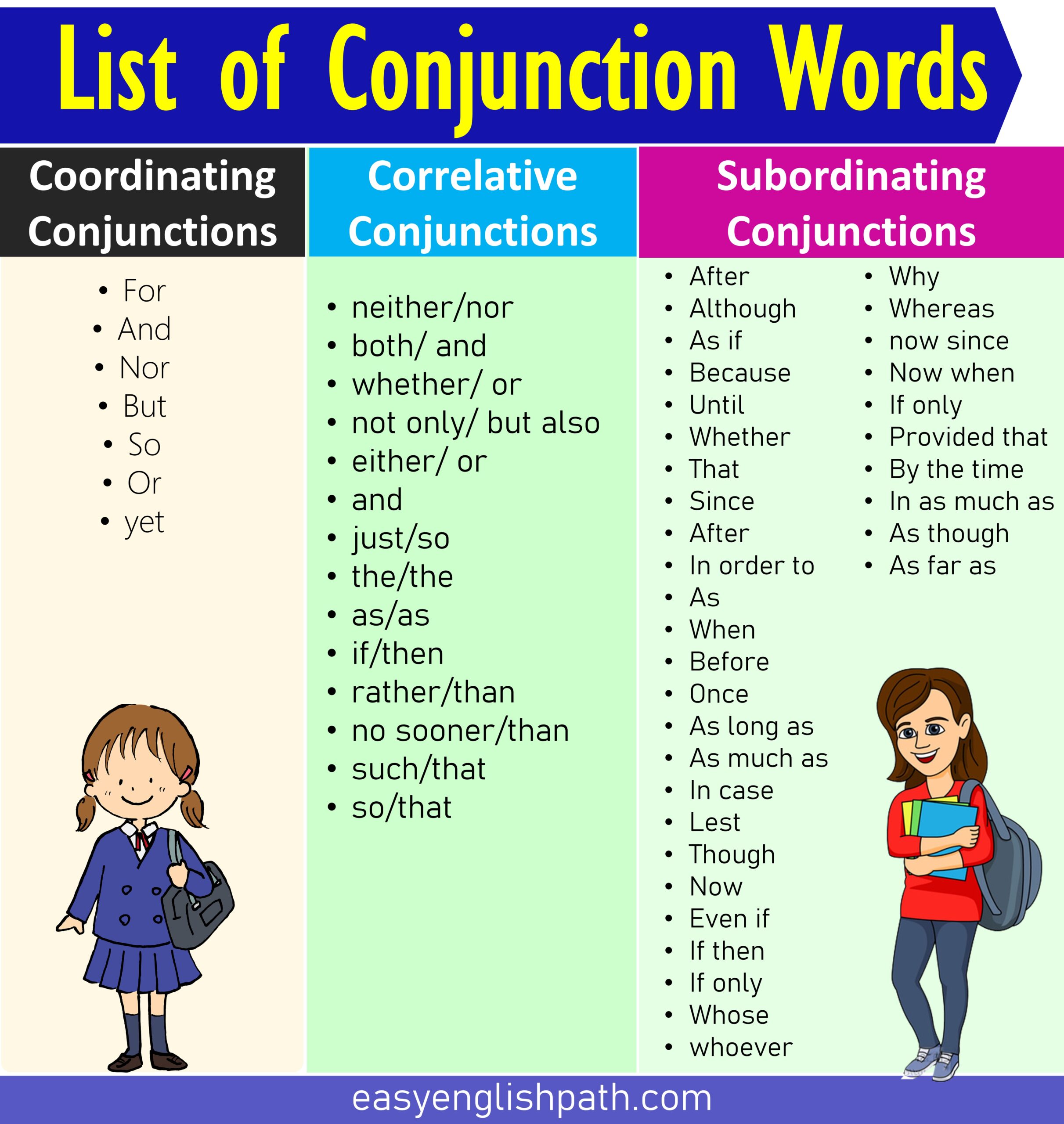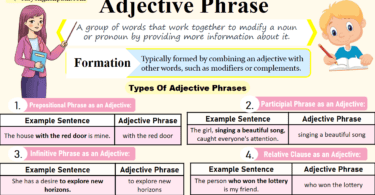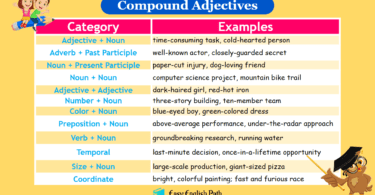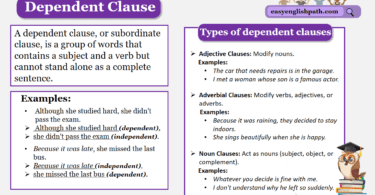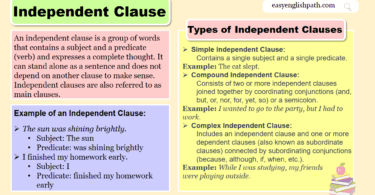Conjunctions are words that are used to connect parts of sentences to make them clear and logical. They’re used to hold our ideas together in writing and speech. There are three main types: coordinating, subordinating, and correlative conjunctions. Coordinating ones, such as and but, These words used to link equal ideas. Subordinating ones like ‘Because’. This word is used to connect dependent ideas to the main ones. Correlative ones, like either…or and both…and, these words always come in pairs to balance sentences. Understanding these types helps us express ourselves better.
Conjunction Definition!
A conjunction is a word that is used to connect two different ideas, or thoughts in a sentence, or a phrase. Thoughts can not be described in a good way until these conjunctions are used appropriately that help express ideas in a flow. Let’s make it more clear with some examples…
Example
She bought a pencil and a laptop.
Here the highlighted word used in the sentences being used to join two various thoughts. ‘pencil’ and ‘laptop’ these two are entirely different things and have been joined by using the word ‘And She studies slow but understands so many important things.
In English grammar, conjunction has a great significance because it helps connect different ideas. There are some types of Conjunction in English which we are going to discuss now with example sentences.
Below are the Types of Conjunction
- Coordinating conjunction,
- Subordinating conjunction
- Correlative conjunction
1. Coordinating conjunction:
Coordinating conjunction is method in which two different clauses, phrases and sentences which have equal ranks are connected together. There are many coordinating conjunctions which are used to connect…
Below are Some of the Words with Examples
For:
(to describe a reason or purpose)
Example: He was so much tired last night, for he worked whole day yesterday.
Nor:
(to express a negative idea to the prior given negative idea)
Example: I did not expect my friend to be rude, nor I expected his family to be rude.
But:
(to provide an added statement usually to show previous one was different)
Example: They rushed to the office for the meeting, but they were late.
So:
(to give introduction of clauses of reason with explanation)
Example: I was feeling extremely thirsty, so I made myself a cup of tea.
And:
(adding something to another)
Example: Asim did not like anyone and nobody liked him too.
Or:
( it is used to show choices)
Example: I will help him financially or I will give him a job
Yet:
(to describe a contrast)
Example:
The criminal was convicted yet many people still admired him.
2. Subordinating Conjunction:
A dependent clause is introduced by it and then it is connected with an independent clauses. It is mostly used to show relationships among different clauses and sentences.
Below is given a list of Subordinating Conjunction Words with examples:
| While | Although | Because |
| Until | Since | When |
| Whether | After | Before |
| That | In order that | Once |
| As if | As |
Subordinating Conjunction with examples:
While:
(1) (describing two different actions)
(2) (showing a contrast)
Example: While you are riding the bike, you should be very careful.
Although:
(it is similar to “but” and used to comment on a statement)
Example: Although it was a cloudy day, but it was not raining.
Because:
(to show contrast with a reason)
Example: The hockey match was cancelled because of the heavy rain.
Until:
(connecting two sentences and phrases)
Example: He continued to work until the end of the April.
Since:
(is a subordinating conjunction used to introduce a reason or cause for an action or event in a sentence.
Example: Asima has been given promotion, since she started working in the company.
When:
(Connecting tow clauses)
Example: When she met, I was working in my office.
Whether:
(Used to describe two different possibilities)
Example: Whether you talk to him or not he will not call you.
After:
(Introducing a clause)
Example: After I sent to him a message, he responded to me immediately.
Before:
(Used to join two different clauses)
Example: We travelled to Lahore before the winter season.
That:
(Joining two clauses)
Example: I didn’t know she was also staying there.
In order that/to:
(used to introduce a clause with a reason and purpose)
Example: She gets up early in the morning , in order that she can do some exercise.
Once:
(to describe the quickness of the timing)
Example: Once you get there, you will surely meet him.
As If:
(to discuss a comparison which might not be true and it is like “as though”)
Examples
It seems as if they had a tough time during the journey.
The water destroyed all houses as if it was the sign of a horror tornado.
As:
(used to connect to various clauses)
Example: The weather was really not good as I expected to be.
3. Correlative conjunction:
Correlative conjunctions are used in pairs and relate one sentence to another appropriate conjunction. Further, it is used to join two equal grammatical terms and followed by a “noun”.
Below is a list of Correlative Conjunctions
| Neither | nor |
| Both | and |
| Whether | or |
| Not only | but also |
|
Either |
or |
Correlative Conjunctions with Examples
Either …or
(Used to talk about two probable choices)
Examples
Either you go there, or I will go there.
Either you leave me alone or I’ll call the police.
Neither…nor
(it is used to negate both the possible choices)
Examples
Neither she will visit me nor I will visit you.
Neither she speaks English nor do I speak French.
Both.. And
(used to join two same ideas)
Examples:
You are both handsome and intelligent.
She is both lazy and pretty.
Whether…..or
to put emphasize on the particular thought selected between two choices
Examples:
Whether you solve the matter or not I just don’t care.
Whether she works hard or not ultimately she will fail.
Not only…but also
used to connect two similar ideas
Examples
She is not only pretty but also a hardworking girl.
Asim is not only a decent person but also a good business man.
You May Also Like

